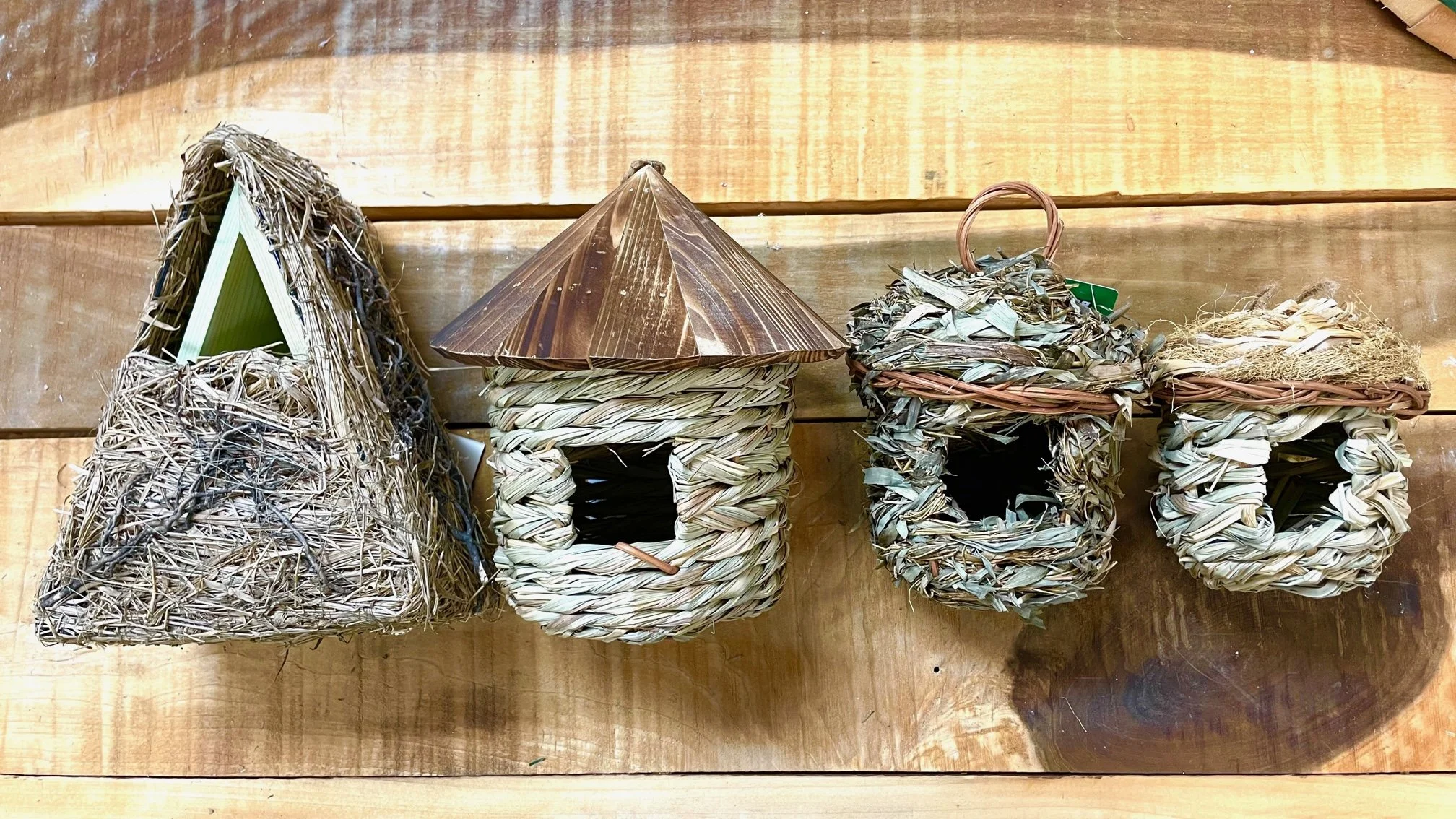With the temperatures dropping and some proper winter temperatures just around the corner, we’d like to share a few winter weather thoughts!
While we feed suet year round, many people associate it as a cold weather feeding option. There is no wrong answer here, and birds will certainly flock to suet regardless of temperature. It is however possible this time of year to attract certain birds to suet (or out of the shell sunflower seed) that you would not ordinarily see at your seed feeders. When the high temperatures are below 45 degrees, insects become difficult to find, and thus it is quite common to see Eastern Bluebirds visiting feeders. Ordinarily, these insect and berry eaters would be unlikely to visit traditional feeding stations, but with cold temperatures it becomes quite commonplace to see them in small groups feeding on suet, out of the shell sunflower, or drinking at sources of thawed water. The same can also be said for Carolina Wrens, as well as Pine Warblers. On many icy winter days, I have witnessed them picking through the Woodland Blend at my platform feeder in search of the out of the shell sunflower seeds it contains.
Birds will also flock to sources of water on cold mornings. You can provide them with this via a deicer. These sit submerged in your birdbath, and with the aid of a built in thermostat, they will keep the water in your birdbath above freezing. It is, however, important to make sure that these stay fully submerged to keep them from overheating and breaking. While on this subject, we would like to remind you that water freezing in your cast stone or ceramic bird CAN and WILL crack the material, even if it is a fountain with running water. We like to remind folks that even Yellowstone Falls can freeze in the winter, and so too can your fountain. If you do not want to invest in a deicer and use a ceramic or cast stone bird bath or fountain, then please, empty the water out of it before it can freeze and crack.
Prices from left to right: $34, $74, $70
This week, we received a number of winter roosts. These small, natural fiber woven shelters offer small birds such as Carolina Chickadees and Carolina Wrens a place to seek shelter from cold and inclement weather. I have personally witnessed Carolina Wrens bundling into these small shelters before dusk on cold nights and before big storms move in. They are most effective if you can position them somewhere sheltered and protected, such as on a porch, patio, or carport. Eastern Bluebirds too will take advantage of nesting boxes to survive cold nights. Shortly before dark, they will pile into the box in numbers as high as 8-12 individuals and then use their soft, insulating down feathers and one another’s body heat to survive frigid nights. This is yet another reason we tell people that today is the best time to put up a bluebird box.
Prices from left to right: $27, $15, $7, $7




